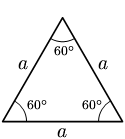A belief is what we believe faithfully or it can also be the opinion that someone has in relation to something or someone. These are the two uses that we attribute to this concept in our language.
What we believe about things usually arises from the experience acquired in life and that then makes us believe that such a thing is produced by this or that, or that it is the result of such action. But also what we choose to believe about something or someone can be determined by the influence we have received from a close model.
That is, if our mother tells us all the time when we are children that the fight never leads to anything and that on the contrary we must lean towards dialogue to solve things, then we will tend to believe that problems are only solved through of the talk, turning into an iron belief. Thus many times beliefs arise that become indestructible throughout life.
On the other hand, it is also common for us to believe in those things that sound coherent or that follow a logic, and on the contrary, we do not believe in those that seem absurd or lacking in common sense. That is, if someone, no matter how much confidence we have in him, tells us that a cow has fallen from the sky, surely, we will not believe him because he is not telling us something logical, a cow cannot fall just because, suddenly from the sky, Never.
So generally speaking, a belief refers to the certainty that an individual has about a certain issue. But also, a belief will be what you fervently believe in, an ideology, a religious doctrine, a personality, among others..
Belief is something like a model, generally based on faith, created by our mind, which then, by interpretation, becomes a cognitive content of a concrete or abstract fact, which will not present an absolute demonstration and it will not even be possible. It will require a rational basis to explain it, but even in this situation of lack of verification, it has serious and certain chances of referring to a truth.
Collective beliefs
Historically, individuals have congregated and grouped around a set of beliefs, many times idealizing these, sharing them and thus constituting what is said to be a cultural and social framework that will be what identifies them and will imprint them an identity. When beliefs are generalized, they establish what is called dogma and thus define the morality necessary to be able to belong or not to that group that defends a type of belief.
Obviously, if a person does not manifest the same beliefs that the group to which he belongs or wants to belong, he will surely be discriminated against on many occasions because of this, not allowing him to express opinions, or he will not be accepted directly to enter the group in question. because it will be considered that he will not be able to defend tooth and nail the beliefs that the majority postulate.

The source or what gives rise to a belief can occur in two ways, external, when the origin is explanations given by people to understand certain phenomena or internal, when they arise from a person's own convictions and thinking.
Belief types
Although the following distinction is not formal, we can find three types of beliefs: opinions, ideologies and religious.
The former are subject to rational criteria, which will justify their truth or not, the latter, based mainly on the constitution of the identity of the social group that supports them, and the latter, the religious ones, whose foundation is outside the world. cognitive and one's own experience and arising from divine revelation or sacred authority.
Also, we can speak of closed or open beliefs, the closed ones, which include political, religious, esoteric, myths, legends and superstitions, they only allow discussion or contrast by a certain class of people, chosen by authority, affinity and open ones. , such as scientific, pseudoscientific, historical, conspiratorial, they admit discussion by anyone who adheres to the proposed logical analysis model.









